If the yellow T-shirt with E=mc2 wasn’t a dead giveaway, I’ll be even more overt—I fit the description in the title. And that means while some might recommend reading Nicholas Sparks, John Grisham, or Danielle Steel, this is the reading list that is meant to torture you—the one that’ll help you understand the world (and universe) but make your neurons ache along the way.
Astrophysics for People in Hurry by Neil deGrasse Tyson
As mentioned previously, zooming out and viewing our experience through a cosmic lens can be deflating for some. That said, for many others, it is liberating, an escape from the minutiae of daily life.
This book zooms out and tackles it all—from the Big Bang to the formation of galaxies to the origins of life—pleasantly reminding us of humanity’s diminutive role in the proceedings.
In Tyson’s words: Imagine a world in which everyone, but especially people with power and influence, holds an expanded view of our place in the cosmos. With that perspective, our problems would shrink—or never arise at all—and we could celebrate our earthly differences while shunning the behavior of our predecessors who slaughtered one another because of them.
Prisoners of Geography: Ten Maps That Explain Everything About the World by Tim Marshall
Bringing it back down to Earth, this book is for all those Americans—like, say, me—who spent their childhoods studying baseball statistics, neglecting to realize there are countries outside the US.
By highlighting ten different regions, Marshall makes an elegant case for how simple geography has shaped much of our world and how foreign policy—despite advances in technology—remains rooted in it.
In his words: Seeing geography as a decisive factor in the course of human history can be construed as a bleak view of the world, which is why it is disliked in some intellectual circles. It suggests that nature is more powerful than man and that we can go only so far in determining our own fate.
The New World Economy: A Beginner’s Guide by Randy Charles Epping
This one is for those who, instead of playing Monopoly or otherwise engaging in matters of money, continued to study baseball statistics.
Epping gives a much needed tour of the modern global economy, touching upon everything from cryptocurrency to trade to artificial intelligence, mercifully limiting confusing jargon (and providing a glossary). The book can be read from cover to cover or used as a reference guide.
As Epping says: Many of us are bewildered by a fast-changing global economy that seems too big and too complicated for us to understand. So we let the politicians make our decisions for us. Unfortunately, the politicians are not always going to do what’s best for us. They’re going to do what’s best for them and their reelection chances.
Babel: Around the World in Twenty Languages by Gaston Dorren
If you’re an evangelist for your preferred language, there’s no one better than linguist Gaston Dorren to beat that out of you.
Dabbling in the world’s twenty most-spoken languages, Dorren highlights the history and quirks of each one, all the while poking fun at the language police who take far too seriously the arbitrary rules that have been created.
In his words: Let a language, any language, become widespread and dominant, and before you know it, people start fawning over it: how it’s so great, so rich, so musical, et cetera, et cetera. In point of fact, every language has started from unpromising beginnings.
How Music Works: The Science and Psychology of Beautiful Sounds, from Beethoven to the Beatles and Beyond by John Powell
Yes, I know you’d rather just get wasted and listen to Led Zeppelin—again.
But give this last one on the reading list a chance. In breaking music down into its component parts, Powell helps us realize that the musical rabbit holes we’ve inhabited for much of our lives are based far more on experience than science.
While addressing concepts such as pitch, timbre, harmony, rhythm, etc., he ends with perhaps the most important advice: Whatever your present tastes, there are probably several other types of music out there which would bring you a lot of pleasure if you became more familiar with them…if you are into heavy metal, try some folk music; if you love Mozart, try Dolly Parton. Musical genres are not exclusive, and one easy way to increase the amount of fun in your life is to expand the range of your listening.
Not interested in the reading list? Try TikTok.
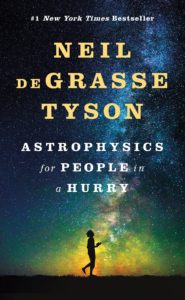
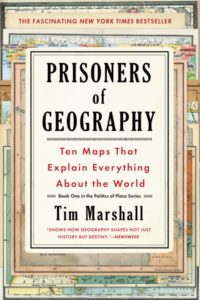
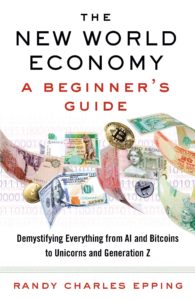
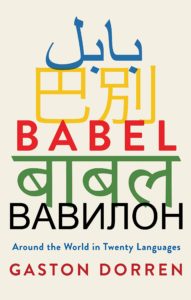
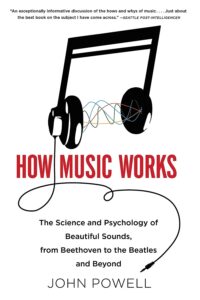
2 Responses
Bahut Accha 👍
Thank you!